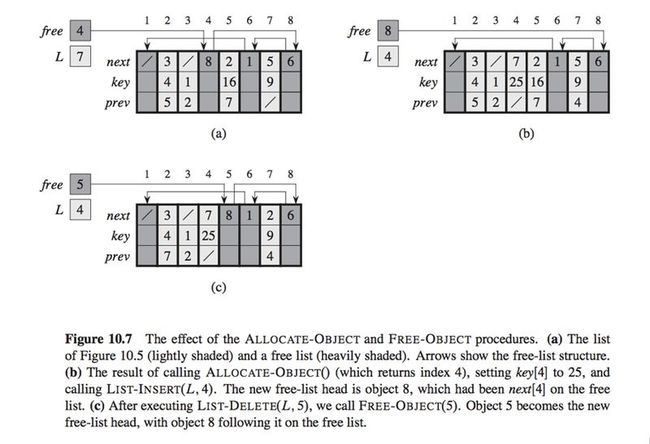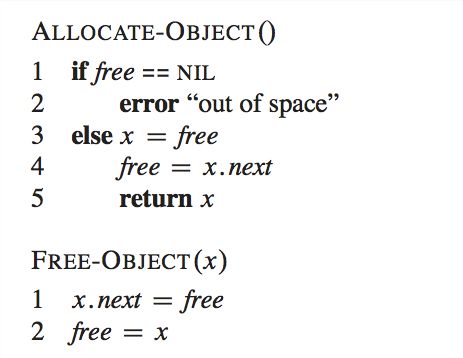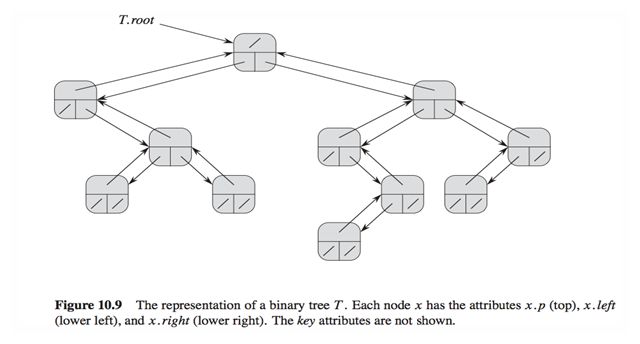10.3 Implementing pointers and objects and 10.4 Representing rooted trees
Algorithms
10.3 Implementing pointers and objects and 10.4 Representing rooted trees
Allocating and freeing objects
分配和释放对象
it is useful to manage the storage of objects not currently used in the linked -list representation so that one can be allocated .
In some systems, a garbage collec- tor is responsible for determining which objects are unused.
一些系统中,垃圾回收机制负责决定哪个对象没有被用到。
we keep the free objects in a singly linked list ,which we call the free list .
Note that each object in the representation is either in list L or in the free list ,but not in both .
The free list initially contains all n unallocated objects . Once the free list has been exhausted ,running the allocate-object procedure signals an error .
10.4 Representing rooted trees
homogeneous 同类的
we first look at binary trees ,and then we present a method for rooted trees in which nodes can have an arbitrary number of children .
二分树,根数:有任意数量的孩子
Binary trees
Rooted trees with unbounded branching
1. x.left-child points to the leftmost child of node x , and
2. x.right-sibling points to the sibling of x immediately to its right .

